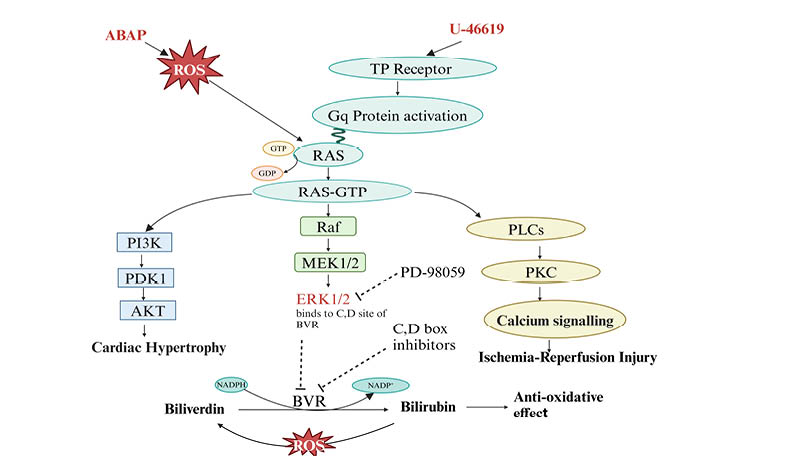INHIBITION OF BILIVERDIN REDUCTASE DIMINISHED THE PROTECTIVE ACTIVITY OF BILIRUBIN AND BILIVERDIN AGAINST OXIDATIVE STRESS-INDUCED INJURY IN HUMAN VASCULAR ENDOTHELIUM
DOI:
https://doi.org/10.17344/acsi.2024.8964Abstract
Endothelial dysfunction, a key factor in cardiovascular diseases, is further aggravated by oxidative stress. Biliverdin (BV) and bilirubin (BR) are potent antioxidants that protect endothelial cells, with biliverdin reductase (BVR) converting BV to BR to maintain redox balance. This study explored BVR's role in mediating these protective effects under normoxic and hypoxia-reoxygenation conditions. Pharmacological inhibition of BVR reduced the protective effects of BV and BR, as evidenced by decreased cell viability, cellular antioxidant activity, and intracellular bilirubin levels. Activation of ERK1/2 reduced BVR's protective function, while its inhibition enhanced it. Additionally, disruption of the BVR-ERK interaction further modulated these effects, highlighting the BVR-ERK1/2 interaction sites as potential therapeutic targets for oxidative stress-induced endothelial dysfunction.

Downloads
Published
Issue
Section
License
Copyright (c) 2024 Kuldeepak Sharma, Irena Zajc, Alen Albreht, Lovro Ziberna

This work is licensed under a Creative Commons Attribution 4.0 International License.
Except where otherwise noted, articles in this journal are published under the Creative Commons Attribution 4.0 International License
